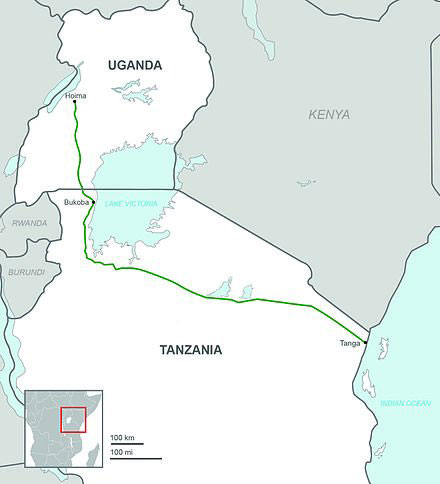
Masaka, Uganda | THE INDEPENDENT | Local Council (LC5) Chairpersons of Lwengo, Kyotera, Rakai, Sembabule and Gomba districts have formed a coalition to push for government funding to monitor the oil pipeline activities and have uniform royalties like the districts of the Bunyoro region.
The leaders including Ibrahim Kitatta, the LC V Chairperson of Lwengo, Patrick Kintu Kisekulo, Kyotera, Samuel Ssekamwa, Rakai, Patrick Nkalubo, Sembabule and Geoffrey Kiviiri, Gomba, say that they want their districts to get a fair share as hosts of the oil pipeline in Greater Masaka Region.
The coalition has selected Kitatta as their chairperson, Kisekulo as spokesperson and Malik Mahaba Amooti, the Sembabule Chief Administrative Officer as Secretary. According to Ibrahim Kitatta, the coalition will help them to make reasonable demands from the oil sector to develop their districts since they are to monitor different activities during and after the construction of the oil pipeline.
He says that the formation of the coalition follows unfulfilled pledges of sh3billion every year, which the Ministry of Energy, Oil and Mineral Development and Ministry of Local Government promised them in 2019.
Kitata says that the two ministries circulated Indicative Planning Figures indicating that the midstream districts would have an annual budget support grant of Shillings 3billion annually, which did not materialise.
He explains that the funds would help the district to position people in different communities to be able to benefit from the pipeline activities, mobilise the communities and ensure they sparingly use the compensation resources to have alternative sources of livelihoods and conduct constant monitoring of the project activities.
He adds that with the reasonable royalties, the districts will be able to build infrastructures such as roads, schools, hospitals and water sources among others.
Patrick Kintu Kisekulo, the Kyotera LC V Chairperson, says that they have not joined efforts to antagonize the oil pipeline project but to ensure their districts are considered to benefit from the project like Upstream Districts of Bunyoro, which are receiving royalties and are already getting this infrastructure.
Patrick Nkalubo, the Sembabule LC V Chairperson noted that the coalition would help the districts to have uniform benefits from the pipeline project using a common voice. He explains that each district was fighting alone to negotiate the royalties and compensation rates but the coordination will strengthen their bargaining power.
Geoffrey Kiviiri, the Gomba LC V Chairperson noted that their coalition would also ensure the PAPs get the compensation that is adequate and timely factoring in the time value of money and inflationary changes that have happened since rates were evaluated three years ago.
Yisito Kayinga Muddu, the Coordinator of Community Transformation Foundation Network (COTFONE), applauded the coalition, saying the district’s demand for fair royalties is significant because they have a responsibility to monitor the oil pipeline activities, environment and human rights protection during and after the project.
However, Muddu says that it is absurd that the Petroleum Act 2013 and the East African Crude Oil Pipeline (EACOP’s Special Provision) Bill 2021 did not consider funding for the districts to monitor the project activities.
He further noted that the Midstream districts are supposed to get reasonable royalties as hosts of the project but the legislators ignored it while passing the Petroleum and EACOP Acts, which may affect the districts if they are not amended.
Muddu appealed to the partnership to ensure the PAPs are fairly compensated and to expedite the process, which has delayed for close to three years. He urged the districts to push for the amendment of the oil laws and include royalties and other issues to favour them and their people.
According to Godfrey Mutemba, the Lwengo District Natural Resources Officer (NRO) and the EACOP Focal person, the majority of leaders in the five districts need to be trained on how the project works and what their role is in the implementation of the project.
****
URN
 The Independent Uganda: You get the Truth we Pay the Price
The Independent Uganda: You get the Truth we Pay the Price





